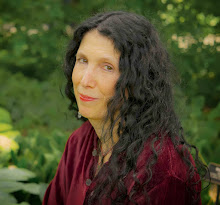“Jonathan Odell can take his place
in the distinguished pantheon of Southern authors.”
–Pat Conroy
“Here it comes---barreling down the track like a
runaway train, a no-holds-barred Southern novel as tragic and
complicated as the Jim Crow era it depicts."
Lee Smith
Lee Smith
Jonathan Odell's novel, Miss Hazel and the Rosa Parks League is a tale of two mothers, in pre-Civil Rights Mississippi, one black and one white, but it's also the story of a most unlikely friendship. I'm thrilled to have Jonathan here talking about the inspiration for one of his characters, Miss Hazel. Thank you, Jonathan!
The Picture Box
By
Jonathan Odell author of Miss Hazel and the Rosa Parks League
The inspiration for Miss
Hazel, the major character from the book, came from an old black-and-white
photo, one of dozens in the fruitcake tin we called “the picture box.” It was a treasure trove of old-time photographs
of grownups in ancient dress, children more grim-faced than their years, and
several mules. My mother’s side of the family, as poor as they were, had been
fervent picture takers. When I was a child, I would randomly pull a picture
from the box and say, “Tell this one, Momma,” and she would narrate the story
of our family.
I remember choosing one
particular photo that disturbed me. It was a family portrait from the 30’s. All
14 of them were standing and squatting and kneeling in front of an old
paintless barn. But I couldn’t find my mother.
When she put her finger
on a gawky, half-starved child, I gasped. The little girl’s hair was dry,
brittle looking, like a straw. Her dress ill fitting and shapeless, faded. Too
short for her spindly legs. Her back was stooped and shoulders slumped. Her
eyes cast downward, her head bowed, seemingly in shame, as if already knowing
the insult the developed photograph would bring. At age twelve, she looked
defeated.
“Momma! That can’t be
you! You’re so pretty! This little girl looks starved and about to die.”
Momma laughed. Then she
pulled out another picture from the box. “See if you can find me in this one.”
It was another family
shot, and I recognized Momma immediately. The transformation was remarkable.
She was looking directly at the photographer. She has an air of sassiness,
maybe even flirting with whoever was taking the picture. Her sisters look
uneasy next to her. She was acting the movie star.
She held her finger provocatively
to her full lips, as if at that moment savoring something exotic, something the
farm-hardened family around her could never be aware of. Something indeed had changed.
This was the mother I recognized, the pretty, flighty one.
“What happened, Momma?”
“I just decided I wasn’t
going to be ugly no more,” she sniffed. “Course they all hated me for it. But I
didn’t let that stop me. I picked extra cotton to buy freckle cream remover. I made
a leather harness to straighten-up my back, and I stole eggs to wash my hair
with. They all called me Little Miss Priss. Said I was getting above my
raising. I didn’t pay’em no mind.”
Years later I was able
to see something in that photograph I hadn’t noticed before. It was the way the
skin-and-bones girl held her right hand. The fingers themselves are tensed, rigid,
almost claw-like, as if they are preparing to grab hold of something in a death
grip, and never let go. The hand is the only thing about this emaciated child
that looks as if it hasn’t completely given up hope, as if something inside
her, when pushed to the wall, would put up one hell of a last fight.
My mother’s obsession
with beauty and fine clothes was not mere vanity. It was an audacious strategy.
For a girl raised in the bone-crushing poverty of the 1930’s South, there were
few options to escape the fate of the farmwives who peopled Jasper County,
Mississippi. Mother decided her only hope was to find a man who thought she was pretty
enough to get her the hell out. She did.
That was the story I wanted to write. About women like my
mother, white and
black,
whose spirits refused to be broken by poverty, violence or oppression, and took
any avenue, no matter how irregular, to save themselves.









No comments:
Post a Comment